He’s a sharp guy, won’t be in the way, and if we get one more person it’ll be perfect.”
“Okay, you know I can’t turn down a chance to race. I’ll make a few calls, you do the same. If you find anyone who knows the difference between a bowline knot and a bowlin’ alley, I’m in. Oh, one more thing, gotta run this by my honey.”
“Great, Steve, I’ll call you tomorrow and we’ll pull this together.”
“Can you call a little later than 6 a.m.?”
“Yeah, sure, also, before you crawl back to bed I got something for you to sleep on—you’ll be at the helm.”
“You know how to warm a guy’s heart.”
“Sweet dreams,” and the phone went dead. By this time Linda was in the shower.
“That was Jim,” I said. “Wants to race his boat in the Coors Cup this Saturday.” I was pushing my luck asking since I promised Linda that this weekend would be family time. Racing three or four times a month is a big commitment for everyone. Family included. Not to mention time spent working on my boat, Different Drummer, a Morgan 27. Keeping it race ready requires tons of work, bottom cleaning, sail fixing, and the never-ending battle of checking every moving part so something doesn’t go snap. Any salt will tell you that Murphy’s Law can smack you down in the worst possible way—and it won’t be during flat seas and a light wind. As sure as the sun sets in the west, a fastened line will come undone, or a line you want to run free will snag.
I handed her a towel when she stepped out of the shower. Without responding to my question, she dried off and wrapped it around her tiny 4-foot 10-inch frame. Her stringy wet hair hung to her shoulders. My honey, at 36 years old, was still carded when we went nightclubbing.
“It would mean a lot to Jim,” I said. “And you could come down after the race. We’ll be drinking Rum Runners at Captain Eddies by 7 o’clock. Maybe spend the night on Ms. Rosewater instead of driving back home.” Ms. Rosewater is Jim’s cruising boat, a Tartan 34, named after a character in Kurt Vonnegut’s book, God Bless you, Mr. Rosewater.
“Okay, alright.” She said, tossing the towel at me. I chuckled at the symbolic tossing in the towel.
Linda encouraged me to race. She knew it was my passion and fueled my competitive spirit. What she didn’t like was the aftermath—a half dozen guys sitting on our dock drinking beer and eating pizza.
“Dinner would be nice, and besides, I haven’t seen Laura in a few weeks. Maybe the four of us can stay aboard Ms. Rosewater Saturday night?” She asked.
“That would be great,” I said.
She smiled and kissed my cheek. “Steve, we need some time on Different Drummer.” She snuggled into me. “I can’t wait to sail down to the Keys next April.”
I hugged her. Last year we gunkholed our way to the Florida Keys, drinking vodka splashed with orange juice. We spent two weeks hanging on the hook in Boot Key Harbor before meandering our way back home, and just like waiting for sunset on Mallory Dock or watching dolphins surfing off our bow; it never grew old.
Later that day I made a few phone calls and heard similar excuses—already have plans, or too short of a notice. I called Jim back.
“We got nobody,” I said. “Looks like it ain’t gonna happen.” “It’s a small boat,” Jim argued. “I can handle the sails. All you gotta do is point it around the course and go fast.”
“I’d like nothing more, but are you up to manhandling a spinnaker on a pitching foredeck? There’s a front moving through and it’s gonna be breezy.”
“Hell, you’re on your game when it’s blowing,” he claimed.
“Maybe, but I fancy 8000 pounds under me rather than a half ton daysailer with a newbie tossing cookies off the stern.”
“1350 pounds,” Jim corrected me, “of mean racing machine,” he added.
“Oh, that makes it better.”
“Tony’s solid and a quick learner. He’ll, umm, make good ballast?” He framed it like a question.
“No sailing experience huh?” I responded.
“Nope.” He paused. “It’s a favor, you know…impress a co-worker.”
I stayed silent; thinking about racing the Santana brought on an adrenalin rush.
“Steve, I’ll make this easy. Just show up at the dock, and drive the pointing end around the course. I’ll even sail it back after the race. Then you can relax on the dock, drink beer and throw peanut shells at me while I hose it down and fold sails.”
I caved, “Okay, okay, check the forecast and get things ready. Oh, by the way, will Laura be around this weekend? Linda wanted to hook-up with her.”
“She’s gonna be busy with her mom, but I’ll have her get in touch.”
*****
Friday night Jim called and said it was still just the three of us and the weather report called for a bit of wind—18 to 22 knots. We would have our hands full, considering lightweight boats don’t mix well with heavy wind and sloppy seas. The kicker was the predicted gusts of over 25 knots.
Jim was on the dock when I arrived—the boat already in the water and the sails on the deck.
I smiled thinking early bird worm theory.
“Steve, this is Tony,” Jim said.
He was a moderately big man in his late 30s and built like a guy that spends a lot of time sitting behind a desk. In this case it was behind a bench, Tony was a DUI judge.
“Hi, glad to have you aboard.” We shook hands. “Any sailing experience, Tony?”
“No, but I’m on the water a lot, fishing.”
I dropped my duffle bag on deck and climbed aboard. Jim started the kicker motor to get us out of the channel. I unfastened the dock lines, coiled and stowed them.
The wind was already kicking-up and there was a chop on the bay. While the motor putted away, we chatted about race tactics and responsibilities. I instructed Tony. “Always stay on the highest rail and duck anytime I yell jibe or coming about.”
“Aye aye captain,” said Tony, in a pirate’s voice.
This guy was likable and smart. I had to trust Jim wouldn’t bring a problem to a race he was so eager to win.
“Another point—don’t take anything personal. My race mode personality shifts a little and my vocabulary drops to a handful of words, like jibe, tack, trim, coming about.”
Jim coughed into his closed fist and nodded while he stared at nothing in particular.
“There’s less confusion,” I continued. “No please and thank you, either, and if everyone’s paying attention, I won’t have to use the word duck, and other four letter words.”
“This’ll send you in the drink,” Jim said and rapped his knuckles on the boom.
“I always yell jibe, but sometimes, in the thick of a race, it comes without warning.”
I pulled my foul weather gear out of my duffle bag and started putting them on. I slipped the bibbed pants over my jeans and fastened the straps over my shoulders—crossing them for a tighter fit. For now, my sweatshirt kept off the chill, so I folded my rain jacket and sat on it. Jim handed the helm over to me and worked his way to the mast.
“Think we’ll get rain,” Tony asked. Immediately a wave crashed the bow sending sea spray across the boat.
“No, but it looks like we’ll get wet.” Jim grinned.
Tony zipped up his jacket and smiled. He looked like an overgrown kid going to Disneyland. I was excited too and a bit anxious.
Jim began raising the mainsail. “I’m tucking in a reef.”
I nodded. It was our best option since our only headsail was a 150.
After the main was up Jim removed the motor from the stern, stowed it below. By the time we got to the starting area we were in full rain gear and the boat was battened down.
The ten-minute warning gun went off on our approach. The race committee had already set the windward marker, about a mile out. The winds were strong and unsteady—the seas erratic. Boats were jostling for position as we sailed into the chaos.
“Jim, let’s head for the line. When we cross it, we’ll jibe back.”
“Yep,” Jim responded. “Got the clock—nine minutes and counting.”
The Santana responded rapidly to sail trim, but it also stalled on a dime. It lacked the weight to carry through heavy seas.
Most boats were staying farther off the line in an attempt to approach at full speed. With less than four minutes on the clock, we crossed the start line. I trimmed hard to weather and settled in for a few seconds. Occasional gusts heeled the boat to the rail.
“Damn, I keep losing rudder. Put a twist in the main, see if that flattens us.” I eased the main while Jim adjusted the traveler.
After a timed 60 seconds, we jibed back for the line. The boat moved swiftly downwind. Too swiftly, we were going to be early.
“Two minutes,” Jim called out.
Our course headed us directly into the fleet and most were pointing our way. Some were luffing their mainsails to bleed off speed.
My plan was to dip over the line, pull into a reach and have full headway when they squeezed the trigger. If my timing was wrong, we would be forced to restart. It was a risky scheme—all or nothing—and our options expired about three minutes ago. Either way, I expected a few one-fingered reviews when we crashed the party.
“Tony, get heavy…lean as far as you can.” He shot thumbs up.
Jim handed me the hiking stick. “Gonna need this,” and slapped it in my hand. I dipped below the stern of a C & C 24 and saluted the captain. He was getting pinched on all sides.
“Sixty seconds” Jim called out. “Gonna be early.” I let off the main and ticked off five seconds.
“Goin’ down the line,” I yelled and swung across the face of the approaching fleet. They were early too. The C & C looked like it would be pushed over the line. Two boats were barging at our end. One tacked and nearly fell into irons, the other flagged his jib and dropped behind, leaving a small opening. I waited two beats, dipped into the gap, and was immediately forced to jibe. The main slammed across the cockpit. Tony looked at me with that “What in hell,” expression.
“Damn it,” I said under my breath. I pointed to the other side of the boat and he scurried across, ducking as if he were avoiding helicopter blades. Jim was calling out the seconds. I was watching our line. Attacking from this position forfeited our right of way and my maneuver created a new problem—we were heading directly at the committee boat. We watch as two men scurried to the bow preparing to fend us off. I was more concerned with snagging our 4-foot keel over their anchor rode.
“Trim up,” I ordered. “Goin’ for the line. Tony, look for red flags.”
Jim started yelling, “Go, go, go,” as the gun went off.
We cleared the committee boat and Jim let out a “Whoop, whoop.”
Dumb luck, I thought. My nifty sailing skills didn’t carry us above the anchor line, it was the strong current.
I glanced back at the fleet of starboard sails jockeying for position. We were in clean air and moving fast, but I still struggled with control when the boat heeled too far. I eased the main a tweak and decided to focus on maintaining speed rather than pointing high. Whitecaps swept across the bay, waves crashed over the bow, and Tony looked like a puppy with his face in the wind as we raced toward the windward mark.
“Jim, we need to get flatter, I’m fighting through the gusts.” He moved forward and repositioned the turnbuckle. I gave him a thumb up.
“Prepare to come about!” I shouted. I grabbed the main sheet and waited for a lull in the trough of waves.
“Coming about!” I yelled as I pulled hard on the helm. She dipped gracefully through a crest of waves and settled into a friendlier rhythm. Repositioning the clew opened up the jib, letting air escape out the top. We still heeled deeper than I preferred, but I did have better control.



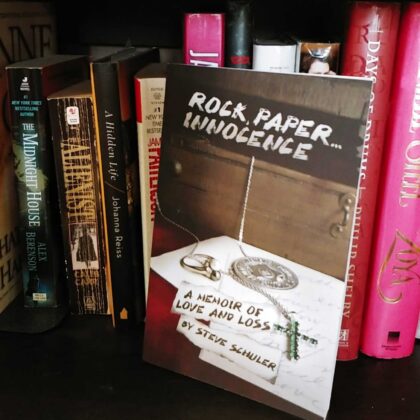
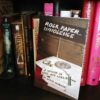
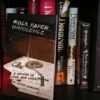

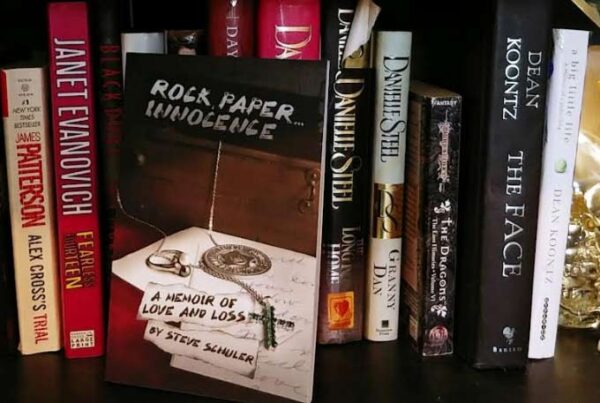
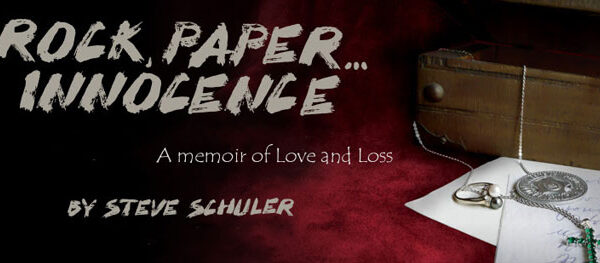

Steve,
I love, love, love reading your stories of the adventures you and Linda shared in your life together! I can hear her voice in these lines and it brings sweet memories! Thank you for sharing these precious moments in your life’s journey!!
Much love,
Debbie Magers
Thank you, Debbie,
It is a joy to write real stories about my love, and my life for nearly 50 yrs. I feel so blessed.
Steve…
How could anyone not want to sail after all that. What a great piece. Loved it!